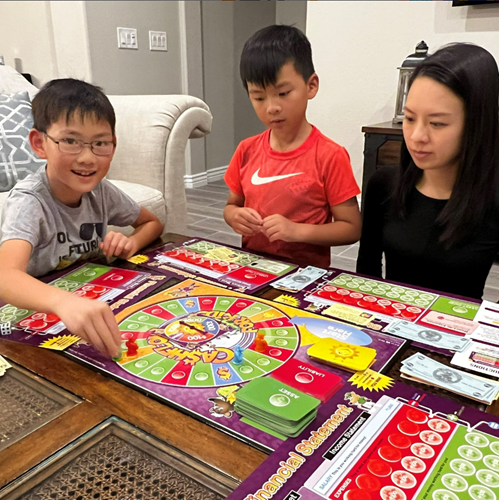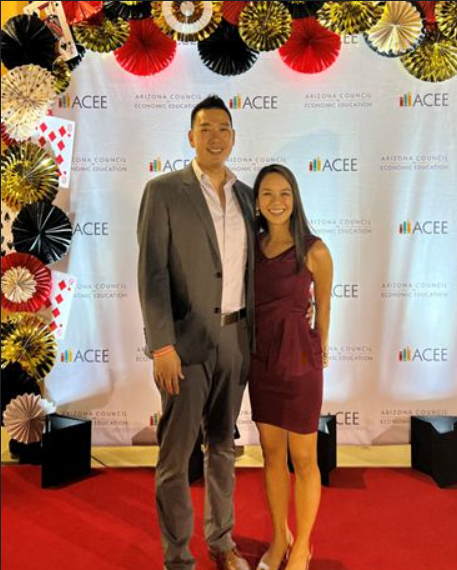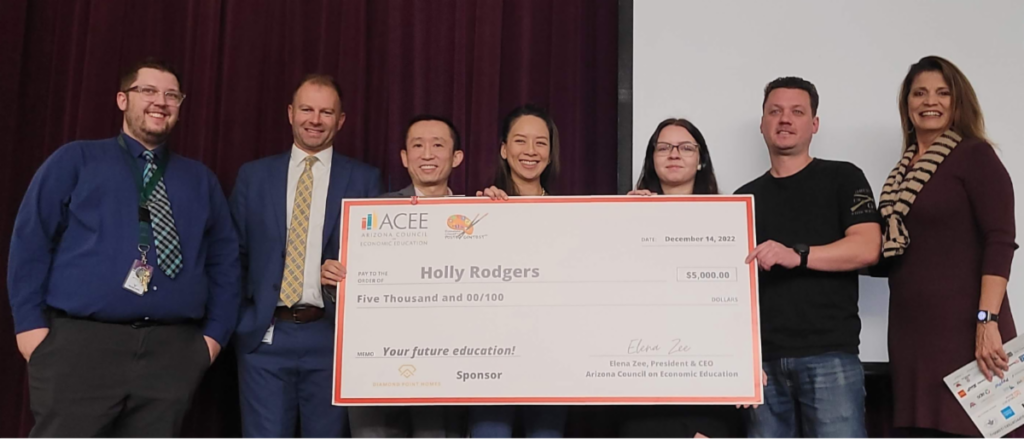Q: How did your family and culture influence who you are today?

Growing up in the fast-growing West Valley community of Maryvale, I was one of six children. My mother is one of eight and I have 28 first cousins! My loving Hispanic family got together for EVERY birthday, wedding, holiday, and long weekend. At the center of these fun times were food and laughter. The center of the family was always my Nana and Tata who valued each and every one of us. Although they embrace the traditional male and female roles in the Hispanic culture all the cousins were taught to be strong, independent, and educated. It is these traits that I am most proud of and give credit to my Nana, Tata, Mom, and Dad.
Q: Why is ACEE important to you?

It seems like so many years ago that I was a new history teacher who was told that I was now going to teach economics. Over 25 years ago, before schools were connected to the world via the internet, teachers like me, did not have instant access to valuable classroom materials. ACEE was my go-to. Without ACEE I might not have continued to teach economics. The lessons, resources, and valuable professional development available from ACEE shaped my teaching career and impacted the thousands of students I had the privilege of touching in the 29 years I taught in Arizona. I am so proud to be on the delivering end of the amazing programs ACEE offers and can’t wait to celebrate our 50 years of existence next year!
Q: Why do you care about financial and economic education?

As the only girl of six children growing up in Maryvale, I did not know anything about my parents’ financial situation. I did not know that we only had one car, only took vacations that could be reached by car and did not have air conditioning in Arizona until I was 13 because my parents struggled financially. Finances were simply not talked about. It was as I worked to put myself through college, and through the first few years of my marriage, that I realized that understanding about budgeting, making good economic decisions, and improving my own human capital is what improves one financial well-being. These are lessons that are hard to learn when out on one’s own. Bringing important lessons in financial and economic education to students in grades K – 12 can help thousands avoid the challenges I had to overcome early in my adulthood.
